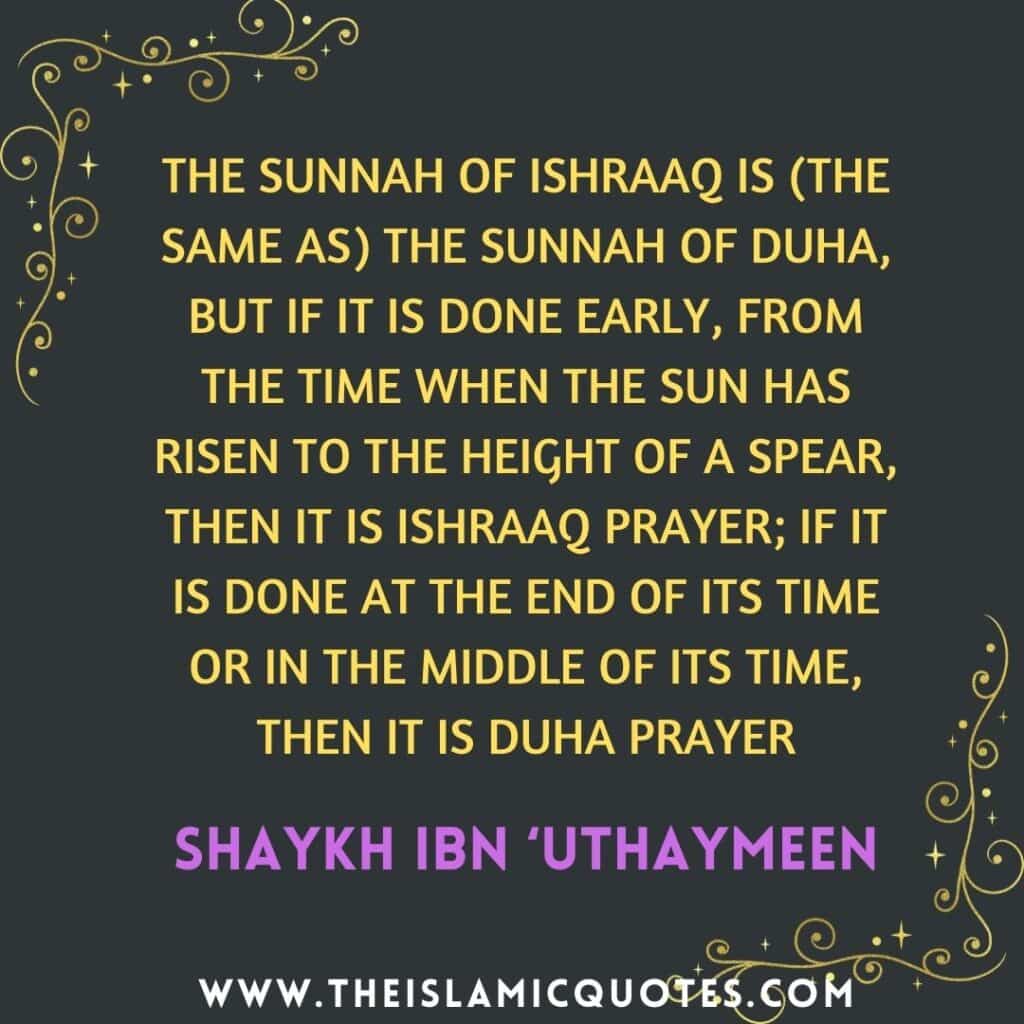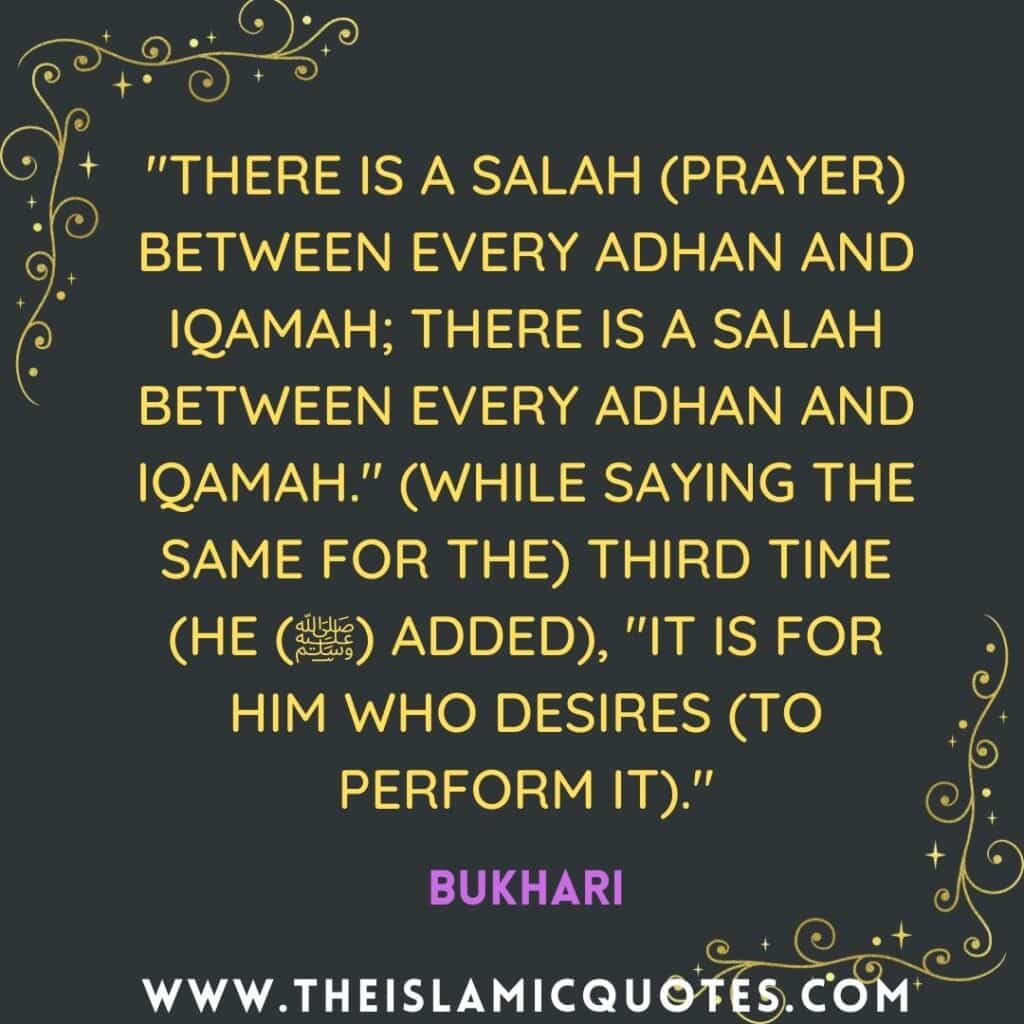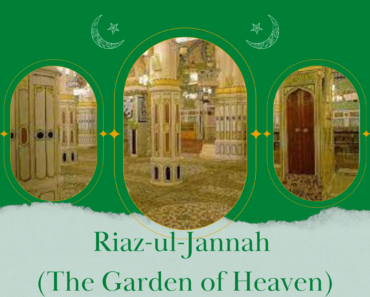Sunnah prayers in Islam: Salah is one of the five pillars of Islam, this is something we have learned growing up. A child is made to remember by counting the five pillars on his fingers as soon as he can talk. All of the Prophets of Allah and all of mankind before Prophet Muhammad were commanded to establish regular prayers. When were five prayers made obligatory?

The Night Journey In a Nutshell
We discussed this event in detail in our post on Things That You Need To Know About Shab-e-Miraj, in case you missed it, here’s a short summary:
Prophet Muhammad traveled to heaven and back in one night, it is called the “Israa Wal Miraj” or the “Night Journey” mentioned in Surah Al-Isra (17th Chapter of the Quran). This took place a year before Prophet Muhammad migrated to Madinah.
In it, the Prophet journeyed from Makkah to Masjid Al Aqsa on the back of a beast called the “Buraq”, which traveled at the speed of lightning. From there he ascended the Miraj (ladder) to Heaven. The only thing that was made obligatory then was that prayer must be offered five times a day.
Otherwise, prayer was a binding duty upon Muslims ever since the early days of Islam. Prophet Muhammad ﷺ was given 3 things that night.
When the Messenger of Allah (ﷺ) reached Sidrat Al-Muntaha” He said:
There terminates everything that ascends from the earth, and everything that descends from above. So there Allah gave him three, which He did not give to any Prophet before him:

What Are Sunnah Prayers?
The five daily prayers are an obligatory (Fardh) practice for all Muslims. Praying is a way to communicate, thank and remember Allah SWT. The daily prayers revolve around the different stages of the day; dawn, noon, mid-afternoon, and sunset. In addition to the obligatory prayers are sunnah prayers.
Sunnah prayers are Supererogatory or Rawatib Salah (Sunnah Prayers associated with Obligatory Prayers), they are highly recommended but not obligatory. Praying supererogatory prayers are backed by proofs having great merits that a Muslim is advised not to miss. There are 2 types of Sunnah prayers
- Sunnah Mu’akkadah or Rawatib (Those The Prophet ﷺ Persisted On And Rarely Missed)
- Sunnah Ghair Mu’akkadah (Those the Prophet ﷺ sometimes performed and sometimes left)

Sunnah Mu’akkadah:
There are 12 Sunnah Mu’kaddah:

The Reward Of These 12 Sunnah Rakahs.
Prophet Muhammad ﷺ said:

Virtue Of Praying These Sunnah Mu’akaddah:
Rawatib prayers make up for the deficiencies in obligatory prayers. Abu Huraira reported, the Messenger of Allah ﷺ said,
The first action for which a servant of Allah will be held accountable on the Day of Resurrection will be his prayers. If they are in order, he will have prospered and succeeded. If they are lacking, he will have failed and lost. If there is something defective in his obligatory prayers, then the Almighty Lord will say: See if My servant has any voluntary prayers that can complete what is insufficient in his obligatory prayers. The rest of his deeds will be judged the same way. TIRMIDHI
Time Of These Sunnah Prayers


Leaving these Sunnah prayers without any valid reason is deemed as sinful by some scholars and others agree on who does not pray the Sunnah prayers is that he lost a great opportunity to earn huge rewards from Allah SWT.
Can We Pray Sunnah Muákkadah Prayers Whenever We Like?
No. You must perform the sunnah when it is ordered to be performed. If it is before fardh then pray it before and if it is after fardh then do it after. And if sunnah is prayed both before and after fardh then do accordingly.
Sunnah Ghair Muákkadah
Other than the Rawatib prayers (highly recommended Sunnah prayers) is the extra Sunnahs that you can pray for extra rewards, like extra credit.
1-Four Rak’ahs Before Asr:
Praying voluntarily before the Asr prayer is a good practice. These four Rakah aren’t established as being the normal Sunnah prayers since it isn’t mentioned as a regular practice.
This prayer should be performed between the Athan and Iqamah at Asr. Although this prayer comes highly recommended it still has a high reward and great merit. These Rakahs are easy to pray so everyone should try their best in practicing them. Its virtue is mentioned in Hadith. Ibn Umar narrated that Prophet ﷺ said:

2-Salatul Awwabin (Two To Six Rak’ahs After Maghrib):
Awwabin is an important Sunnah Salah offered between Maghrib and Isha. Awwabin means those who turn to Allah alone. Salat al-Awwabin is prayed in sets of two or four. The minimum is two rakahs. Prophet Muhammad ﷺ said :

Another virtue, Allah’s Messenger ﷺ said:
“Whosoever prays six raka’āt after the maghrib prayer shall be written amongst the “al-Awwābīn.” He then proceeded to recite the verse: “Indeed, to all those who are ever-penitent He is all-forgiving.” – TIRMIDHI
It is also narrated by Huzaifah رضي الله عنه:
I came to the Prophet ﷺ and performed Maghrib with him. When he completed the (Maghrib) salah, he stood to perform (optional) salah. He continued to perform salah until he performed Esha and then he left.” -AHMAD
3- Ishraq Prayer ( Prayer After Sunrise)
Some scholars term Ishraq and Duha prayer the same. But a lot of scholars say they are two different prayers. I prayed 15 minutes after sunrise or the sun has risen and reached the height of a spear (which is approximately 15-20 minutes after sunrise) then it is Ishraq and if prayed midday then Duha prayer.

- Benefits Of Ishraq Prayer

Another virtue, Prophet Muhammad ﷺ said:

Allah’s Messenger ﷺ said:
Allah blessed and Most High said Son of Adam perform four rakah for me at the beginning of the day, it will suffice you for the later part of it.-TIRMIDHI
4-Duha Prayer ( The Forgotten Treasure)
Forenoon prayer or ‘Chasht’ prayer as known in the subcontinent, is prayed mid-morning and its time ends 15 minutes before Zuhur prayer. It’s prayed 2 Rakahs at a time.
The most preferred time for Duha prayer is at the hottest part of the day when the sun has reached its zenith (its highest point), and this is approximately halfway between sunrise and Zuhur prayer. The Prophet ﷺ said:
“The [voluntary] prayers of the day and night are to be offered two by two.–TIRMIDHI
What is meant by two by two? Ibn ʿUmar said:
“Saying the tasleem after every two rakʿahs.” MUSLIM
The Prophet ﷺ said :

- How Many Rakahs Of Duha Prayer?
Mua’dhah رضي الله عنه asked Aishah رضي الله عنه :
How many Rakahs did the Messenger of Allah ﷺ pray in Duha?
She said:
Four Rakahs and however many more he wanted.- MUSLIM
- Benefits Of Duha Prayer
- Sadqa For The 360 Joints In Your Body
The Prophet ﷺ said:
“In the morning, every single joint of yours must pay a sadaqah (charity). Every SubhanAllah is a sadaqah, every Alhamdulillāh is a sadaqah, every La Ilaha Illa Allah is a sadaqah, every Allahu Akbar is a sadaqah, every commanding good is a sadaqah, and every forbidding evil is a sadaqah, and all this is accomplished through two rakʿahs one can pray in Duha [prayer]– MUSLIM
- Adviced From Allah’s Messenger Himself:
Abu Hurayrah رضي الله عنه reported:
My beloved (the Prophet ﷺ) advised me to do three things, which I will never abandon so long as I live:
to fast three days of each month,
to pray two rakʿahs of Duha prayer, and
not to sleep until I pray Witr. – BUKHARI
- Forgiveness Of One’s Sins
Abu Hurayrah رضي الله عنه reported, the Prophet of Allah ﷺ said:
Whoever regularly prays the two rakʿahs of Duha, his sins are forgiven even if they are like [the vastness of] the foam of the sea.- TIRMIDHI
- A Palace In Paradise
Anas b. Mālik رضي الله عنه narrated that the Messenger of Allah ﷺ said:
Whoever prays twelve rakʿahs of Duha, Allah will build for him a palace of gold in Paradise.
Abu ad-Dardā’ narrated that the Messenger of Allah ﷺ said:
“Whoever prays Duha will not be written amongst the heedless (people), and whoever prays four (rakʿahs) will be written amongst the worshipers, and whoever prays six (rakʿahs), it will suffice him on that day, and whoever prays 8 (rakʿahs) will be written amongst the pious, and whoever prays 12 rakʿahs, Allah will build for him a palace in Paradise.
The last virtue regarding a palace in Jannah is weak, but still are virtues and the contribution to the virtues mentioned above adding to the fact that Salatul Duha is an important Sunnah prayer as well.
4- Two Or Four Rakahs Before Isha
This comes as a general recommendation based on this hadith, Abdullah bin Mughaffal رضي الله عنه reported, the Messenger of Allah (ﷺ) said:

5- Tahajjud (The Night Prayer)
This is usually as Nafl (voluntary prayers which are not obligatory). Tahajjud is the voluntary prayer that the Messenger of Allah offered regularly and it holds great merits. So it is safe to term it a Sunnah as well. Bring Tahajjud into your life, it’s not something confined to Ramadan. Abu Hurayrah رضي الله عنه reported, the Prophet of Allah ﷺ said:

- Time Of Tahajjud
Make intention of praying Tahjjud. It can be prayed till 20 minutes before Fajr. But it can also be performed in the early part of the night, the middle part of the night, or the latter part of the night after Isha Prayer.
But it is best to delay it to the last third portion of the night.
Abu Ad-Darda’ رضي الله عنه narrated the Messenger of Allah ﷺ as saying:
“Whoever goes to his bed to get up and pray during the night, but, being overcome by sleep, fails to do that, he will have recorded for him what he has intended, and his sleep will be reckoned as a charity (an act of mercy) for him from Allah SWT.” – IBN MAJAH
It is also been narrated Ibn Hajar says:
“There was no specific time in which the Prophet (peace and blessings be upon him) would perform his late-night prayer, but he used to do whatever was easiest for him.”
- Benefits Of Tahajjud Prayer
- Forgiveness
Abu Hurayrah رضي الله عنه reported, the Prophet of Allah ﷺ said:

“Be vigilant in standing up [in prayer] at night, for it was the practice of the pious before you. It is a means of gaining proximity to Allah Ta’ala, expiation for transgressions and a barrier from sins.”– TIRMIDHI
- A Means Of Securing Allah’s Pleasure
It is mentioned in the Quran:
And in part of the nighttime, offer Tahajjud further than what is present on you; perhaps your Lord will host you to a place of immense magnificence.” [Al-Isra: 79]
- Allah SWT Answers Your Deepest Desires
Tahajjud is the best way to get one’s duaás answered. Imam Shafi has said:
The dua made at Tahajjud is like an arrow that does not miss its target.
You can learn all about tahajjud through our post on Things You Should Know & How To Pray Tahajjud.
6- Tahiyat-ul-Masjid (The Prayer of Greeting the Mosque)
The meaning of Tahiyatul Masjid is to respect the mosque. The best possible way to pay respect to a mosque or greet the mosque is prayer.
The Tahiyatul Masjid prayer is a sunnah prayer that is performed when a Muslim enters the mosque. In other words, the Tahiyatul Masjid prayer can only be done in the mosque. It is not a Fardh (obligatory) act of worship, but Mustahabb (recommended).
It was narrated from Abu Qatadah رضي الله عنه that the Messenger of Allah (ﷺ) said:
“When any one of you enters the Masjid, let him pray two Rak’ahs before he sits down.- BUKHARI
We must try to keep up with it without fail. All scholars agree that this is a highly recommended Sunnah. According to Shaykh Ibn ‘Uthaymeen:
The view that tahiyyat al-masjid is obligatory is strong, but the more likely to be correct is the view that it is a confirmed Sunnah.
Concluding Remarks:
Every sunnah of the Prophet Muhammad ﷺ brings about immense merits and blessings from Allah SWT. Strive to increase your Sunnah prayers it will increase your closeness to Allah SWT.
You must increase prostration (multiply prayer) only then Allah SWT will elevate your rank and eradicate your sins.- MUSLIM







As Salamu Alaikum wa Ramatullahi wa Barakatu. May Allah reward you for providing the correct information that I lost. Ameen. I lost my books when moving from one state to another.